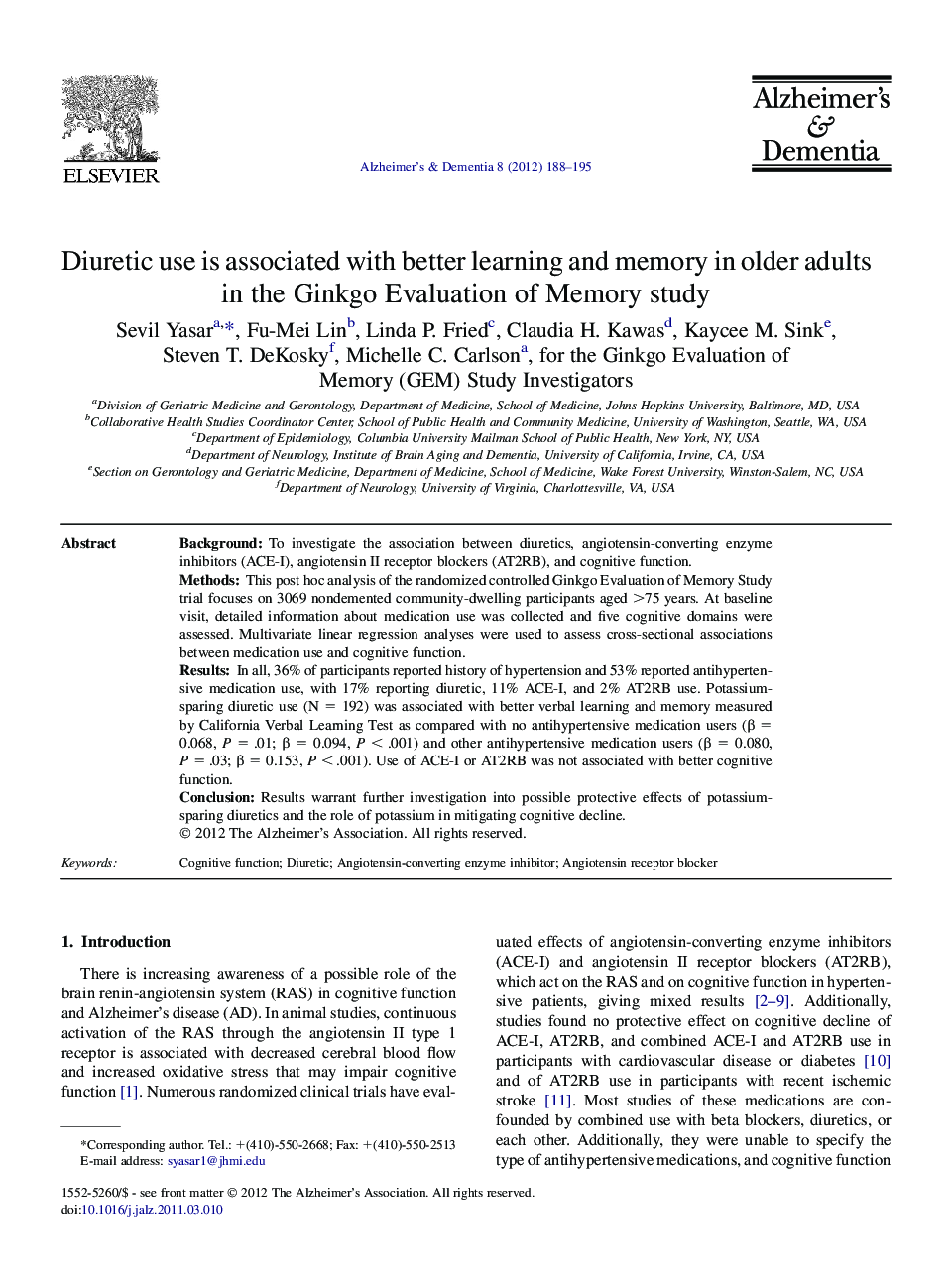| کد مقاله | کد نشریه | سال انتشار | مقاله انگلیسی | نسخه تمام متن |
|---|---|---|---|---|
| 5624984 | 1406263 | 2012 | 8 صفحه PDF | دانلود رایگان |

BackgroundTo investigate the association between diuretics, angiotensin-converting enzyme inhibitors (ACE-I), angiotensin II receptor blockers (AT2RB), and cognitive function.MethodsThis post hoc analysis of the randomized controlled Ginkgo Evaluation of Memory Study trial focuses on 3069 nondemented community-dwelling participants aged >75 years. At baseline visit, detailed information about medication use was collected and five cognitive domains were assessed. Multivariate linear regression analyses were used to assess cross-sectional associations between medication use and cognitive function.ResultsIn all, 36% of participants reported history of hypertension and 53% reported antihypertensive medication use, with 17% reporting diuretic, 11% ACE-I, and 2% AT2RB use. Potassium-sparing diuretic use (N = 192) was associated with better verbal learning and memory measured by California Verbal Learning Test as compared with no antihypertensive medication users (β = 0.068, P = .01; β = 0.094, P < .001) and other antihypertensive medication users (β = 0.080, P = .03; β = 0.153, P < .001). Use of ACE-I or AT2RB was not associated with better cognitive function.ConclusionResults warrant further investigation into possible protective effects of potassium-sparing diuretics and the role of potassium in mitigating cognitive decline.
Journal: Alzheimer's & Dementia - Volume 8, Issue 3, May 2012, Pages 188-195